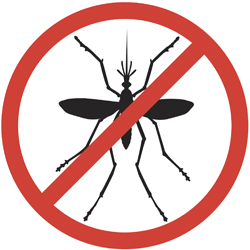Immune protection from malaria
A major obstacle to these development efforts is the absence of any assays or clinical parameters that predict whether an exposed person is protected against malaria. People in malaria endemic areas develop, with time, a form of immunity to infection, mediated by antibodies directed against P. falciparum. An antigen, or antibody generator, is any substance which induces an immune response. Absence of an assay for P antigen repertoires has prevented the investigation of the mechanisms of natural protection to malaria, and slowed the development of new vaccines. The EU-funded Marie Curie Actions FIGHTMAL(opens in new window) consortium employed the expertise of its members in microarray immunoassay technology to study serum reactivity profiles against the P antigens. The four–year project was structured to exchange skills, knowledge and resources between European and disease endemic countries, by including two Uganda-based research centres. The project objective was to develop a microarray immunoassay covering the entire repertoire of surface secreted P proteins. This would allow comparison of immune profiles of protected and non-protected persons in malaria-exposed communities. Antigens that induce protective immunity could then be identified.A wide range of bioinformatics tools were used to identify possible P antibody targets. A dedicated database was developed to store and retrieve all the bioinformatics and experimental information generated by the project. Using a proteins database, the consortium identified protocols and strategies for cloning, protein expression and purification of P proteins for inclusion in the putative immune targets chip. A panel of European negative and African positive sera was tested on protein microarray chips with different antigens, immune targets and vaccine candidates for assay validations.Epidemiological studies in were carried out in Uganda using developed microchips. The longitudinal study of the project was completed within two years and all the data were deposited into the consortium database.Antibody responses to several P antigens and to mosquito salivary proteins were detected and correlated with age, exposure to malaria parasites and the risk of subsequent malaria episodes. While all antibody responses against all the antigens were associated with malaria exposure, none were independently associated with the risk of clinical malaria. Illustrating how difficult it is to disentangle malaria exposure from indicators of clinical protection, the research data underlines the importance of the FIGHTMAL project.







